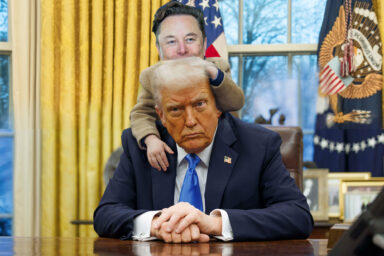Are you good with 100 percent of the money you give for disease research being kept by the telemarketer who called you? Didn’t think so.
If you live in the United States, you surely have been the recipient of phone calls soliciting funds for worthy causes—nonprofits working to cure cancer, diabetes, heart disease, multiple sclerosis and the like. And if you’re a decent person, you probably do the decent thing, and agree to make a donation, figuring, reasonably, that most of that money would go toward urgently needed research.
But what if we told you that 70, 80, even 100 percent of what you give goes to a private company with the contract to do the fundraising? You’d be outraged, wouldn’t you?
Yet that’s just what our friend David Evans, a superb reporter for Bloomberg Markets Magazine, found in a months-long investigation.
Numerous of America’s biggest and most respected charities signed contracts with a company called InfoCision, which by contract gets to keep at least fifty percent of what it raises. The public is not told this—is in fact, telephone scripts written by InfoCision and approved by the Diabetes Association and the American Cancer Society told call recipients, falsely, that at least 70 percent of donations go for charitable purposes. That would not be true in the case of a deal between the cancer society and InfoCision, in which the private company in 2010 got to keep 100 percent of what it raised—and then docked the charity for an additional $113,006 in fees.
Commenting on these practices, the vice president of another nonprofit, the Diabetes Association, actually says,
Obviously, if people feel betrayed or that we’re not being honest with them, it doesn’t make me feel well…But the thing is, we’re a business. There has never been a time or a place where we said, ‘Most of this money is coming to us.’
It should be noted that there is a justification for these crazy-sounding practices. These organizations are actually paying to collect names so they can go back a second time, this time without paying a telemarketer, and keep the money for programmatic purposes.
But there must be a way to be straight with the public, and maybe to successfully capture contributions the first time around without a company like InfoCision keeping half of the $424.5 million it raised “for charities” from 2007-1010.
And there’s a larger point. For years now, we’ve been told that government stinks, and that on everything from health insurance to basic research, we are always better off trusting large private charities and corporations than relying on those paid directly with our tax dollars. The evidence, time and again, suggests that it is not so simple.
# #
GRAPHIC: https://projectquinn.com/wp-content/uploads/2011/04/telemarketer-pic-dec-2008.gif



